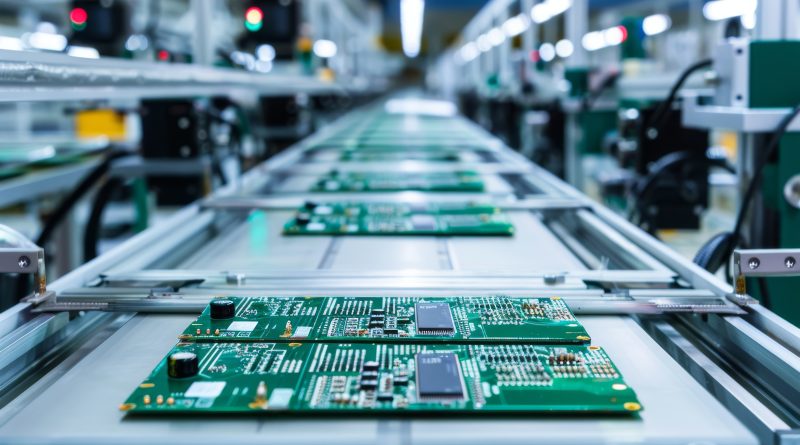TSMC Commences $10 Billion Semiconductor Plant Project in Germany
Taiwan Semiconductor Manufacturing Company (TSMC), the world’s leading chipmaker, is set to make a significant leap into the European market with the construction of its first chip manufacturing plant in Dresden, Germany. This $10 billion investment marks a pivotal moment for TSMC and the European semiconductor industry, which has been seeking to reduce its reliance on Asian and American chip supplies. The ground-breaking ceremony, scheduled for August 20, 2024, will initiate a project expected to be operational by late 2027. The facility will focus on producing 28nm, 22nm, and 16/12nm nodes, critical for various applications from automotive to industrial equipment.
TSMC’s Global Operations and the Strategic Importance of the Dresden Plant
TSMC, headquartered in Hsinchu, Taiwan, has been a cornerstone of the global semiconductor supply chain, providing advanced chips to tech giants such as Apple, Nvidia, and AMD. With existing fabs in Taiwan, the United States, and Japan, TSMC’s decision to expand into Europe underscores its strategy to diversify production locations and mitigate risks associated with geopolitical tensions and supply chain disruptions. This move is part of a broader trend among semiconductor companies, including Intel and Samsung, to establish a more global footprint in response to the increasing demand for chips across various industries.
The selection of Dresden, known as “Silicon Saxony,” is strategic due to its existing semiconductor ecosystem and infrastructure. The region hosts numerous semiconductor companies and research institutions, making it an ideal location for TSMC’s new plant. This facility, named the European Semiconductor Manufacturing Company (ESMC), will see TSMC collaborate with industry partners such as NXP, Infineon, and Bosch, each holding a 10% stake in the plant.
The Dresden facility is set to become one of the largest and most advanced semiconductor manufacturing plants in Europe. With an expected production capacity of 40,000 wafers per month, the plant will initially focus on producing mature technology nodes like 28nm, 22nm, and 16/12nm. These nodes are crucial for automotive, industrial, and consumer electronics applications, which are experiencing robust demand in Europe.
The total investment for the plant is estimated to exceed $10 billion, highlighting TSMC’s commitment to the European market. The project is expected to create thousands of jobs, boosting the local economy and reinforcing Dresden’s position as a semiconductor hub. The German government has also shown strong support for the project, offering incentives and infrastructure support to ensure its success.
TSMC’s Entry into Europe Will Transform the Semiconductor Industry
TSMC’s entry into Europe is poised to have a transformative impact on the region’s semiconductor industry. By establishing a local manufacturing presence, TSMC will help alleviate the European Union’s concerns about supply chain security and reduce its dependency on imported semiconductors. This move aligns with the EU’s broader strategy to double its share of global semiconductor production to 20% by 2030.
The Dresden plant will also foster innovation and collaboration within the European tech ecosystem. By partnering with leading European companies like NXP, Infineon, and Bosch, TSMC will enhance the region’s capabilities in semiconductor research and development. This collaboration is expected to drive advancements in automotive technology, industrial automation, and IoT, areas where Europe has a strong market presence.
Moreover, TSMC’s investment is likely to spur further investments from other global semiconductor companies. Intel, for instance, has already announced plans to build a $32.4 billion facility in Magdeburg, Germany, though its construction has been delayed due to land suitability issues. These developments collectively signal a renaissance for the European semiconductor industry, positioning it as a critical player in the global market.
Looking ahead, TSMC’s Dresden plant represents just the beginning of its European ambitions. The company has hinted at the possibility of further expansions and increased production capacities depending on market demand. This strategic move not only strengthens TSMC’s global supply chain but also enhances its resilience against geopolitical risks.
For Europe, the presence of TSMC and other major semiconductor manufacturers will accelerate the development of a robust and self-sufficient semiconductor ecosystem. This is crucial for the region’s economic growth and technological sovereignty, ensuring that Europe remains competitive in the rapidly evolving digital landscape.
Sources:
